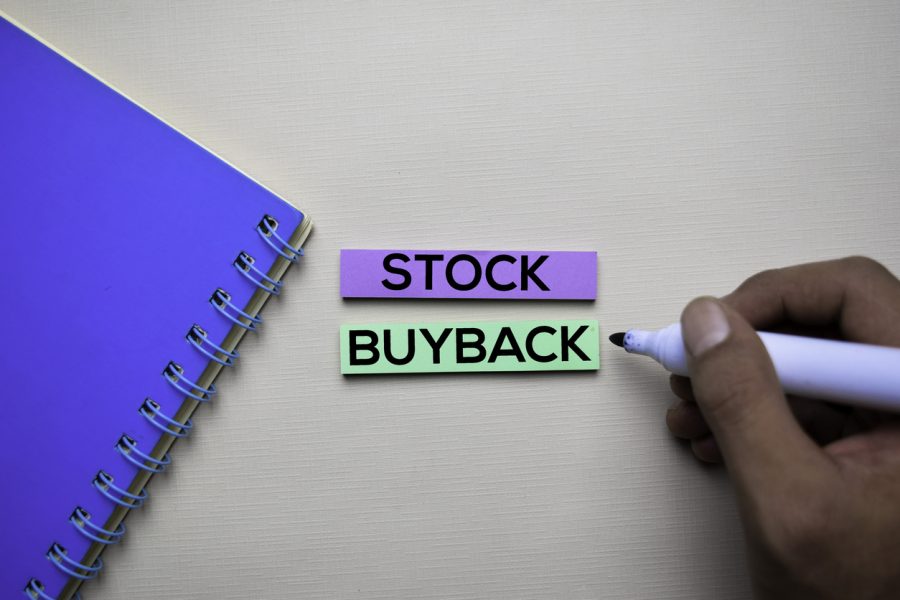
Share buyback from market is insidious; phased ban is the way to go
SEBI will gradually phase out buyback of shares by companies through the stock exchange route, as it is vulnerable to favouritism; the tender route in comparison comes smelling of roses

The Securities and Exchange Board of India (SEBI) on Tuesday (December 20) decided to gradually phase out buyback of shares by companies through the stock exchange route to address the drawbacks associated with the existing mechanism. SEBI Chairperson Madhabi Puri Buch said the regulator has chosen the tender offer route for share buyback, as the present mode is vulnerable to favouritism.
A SEBI committee, headed by HDFC vice-chairman and CEO Keki Mistry, proposed that the mechanism of share buybacks through open market transactions be abolished in a phased manner, with the option to close down the route from April 2025.
“Under the stock exchange route, there is a possibility of one shareholder’s entire trade getting matched with the purchase order placed by the company and thus depriving other shareholders to avail the benefit of buyback,” the Keki Mistry committee is said to have observed. The committee was appointed by SEBI to weed out the potentially mischievous aspects of buyback.
Proportionate offer
The committee recommended the phased withdrawal of buyback through the market route, thus leaving buyback through proportionate offer to all the shareholders democratically as the only means of consummating buyback.
Opinion: Nykaa’s bonus issue a show of contrition, but malaise lies deeper
SEBI currently stipulates that buybacks from the open market should be less than 15 per cent of the paid-up capital and free reserves of the company. It gives the company a timeline of six months from the date the offer opens. The committee has laid out a roadmap for the phased abolition of the market buyback route. It recommends lowering the threshold limit and the time for completion of the buyback offer to 10 per cent and 66 days from April 1, 2023, and then to 5 per cent and 22 days from April 1, 2024. And a complete ban on the market route for buyback from April 1, 2025.
Possible abuse of buyback
The committee did well to flag the possible abuse of buyback, with the company willy-nilly ending up buying from a sole buyer sitting on shares it has agreed to buy back, thanks to the matching of the order size of the buyer and seller done by the screen-based transaction regime. Other shareholders would be left holding the can. This danger of one shareholder hogging the whole scheme is eschewed in the proportionate offer route.
And such a sole seller would walk away with exemption conferred to long-term capital gains on shares through recognised stock exchanges in India. Indeed, this abuse is not confined to buyback but also block deals routinely consummated by promoters in family settlements — go through the farce of say putting a sale order for 10 lakh shares matched by a buy order for the same quantity by the seller’s sibling sitting across the table from a different laptop.
The seller walks away with the exemption to long-term capital gains tax, laughing up his sleeve at the naivete of the system.
A form of insider trading
The market purchase route, more fundamentally, is the most insidious form of insider trading — a company trading in its own shares in the market. The proportional purchase route in comparison comes smelling of roses though there is a dawning realisation that the very concept of buyback from market or from individual shareholders directly is questionable.
A Harvard Business Review report some six months ago, that more than half of corporate profits are splurged on buyback of shares in the US, is revealing in the light of the carping criticism that the money thus splurged could have been better used in job creation and capacity enhancement in the COVID-ravaged economy.
In India, it is happening on a smaller scale, with the IT industry — led by TCS and Infosys — resorting to proportionate buyback almost every year to take advantage of the tax arbitrage between tax rate on dividends and on buyback. Twenty per cent is the tax a company has to pay on the difference between the buyback price and the issue price of the shares, vis-à-vis 30 per cent plus tax payable by promoters on dividend received by them. Thus, dividend is guised as buyback just as dividend is guised as royalty to leave foreign collaborators with minor tax bruises.
It is for the government to ponder whether this arbitrage should be removed by pitching the buyback tax rate on companies at the 30 per cent level. To be sure, if excessive cash is sloshing around, it ought to be returned to the shareholders. The issue however is how — through buyback or transparently and upfront through dividend?
Also read: Byju’s is too big to be let to fail; it needs a rejig to remain relevant
Buyback smacks of double-take. Issue shares only to buy them back. Paytm is facing criticism mainly on this account — its shares have tumbled to less than half of the last year IPO price of ₹2,250. And its promoters, as if to atone for their avarice in pitching the IPO price high so as to ride piggyback on it through the OFS (offer for sale) route, are now proposing to smoke the peace pipe with investors.
At any rate, one must hail the phasing out of the market buyback route as a good first step. One hopes the government will also mull if it makes sense to allow buyback at all.
(The writer is a CA by qualification, and writes on business, consumer issues and fiscal laws.)


